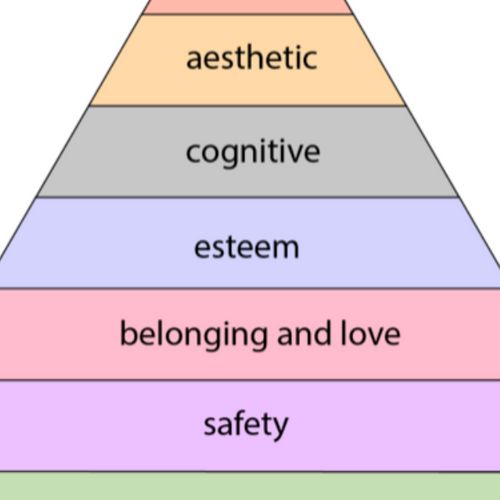Top Psychology Theories + Examples
Mar 21, 2023 · 2 mins read
0
Share

Abraham Maslow's Hierarchy of Needs:
Imagine a pyramid of cupcakes: you can't enjoy the frosting without the base. Humans must satisfy basic needs (e.g. food, safety) before going after higher needs (e.g. self-esteem, spiritual growth).
If you’re hungry you won’t be meditating
Save
Share
Freud's Psychoanalytic Theory:
Imagine an island luxury resort in an earthquake zone.
At any time the deeper geological reality may assert itself, despite the wishes of the resort owners.
Your carefully contrived persona is the resort; your unconscious mind is the land.
Save
Share
Adler’s Inferiority Complex:
We constantly measure ourselves against others, and compensate for perceived weakness often extreme ways.
Napoleon, a small man making a big impact on the world, was the classic case of an inferiority complex in action.
Save
Share
Anna Freud’s Defense Mechanisms:
The child was a passionate “wanter”, demanding objects and clothing.
She became an unmarried governess, dull in outlook and dress, living for others.
What happened?
Selflessness: a defense against the inability to satisfy her own desires.
Save
Share
Leon Festinger’s Cognitive Dissonance:
Ever bought a pricey gadget, only to find it mediocre? You rationalize your purchase to reduce the mental discomfort of your mistake.
Cognitive dissonance is a mental tug-of-war, pushing us to resolve conflicting emotions.
Save
Share
I.P. Pavlov’s Operant Conditioning:
We train dogs to fetch by rewarding them with treats. Behavior is learned through consequences (reinforcement or punishment).
Your colleague who always brings donuts to meetings? They might be seeking praise or avoiding criticism.
Save
Share
Philip Zimbardo’s Stanford Prison Experiment:
Participants randomly assigned as "prisoners" or "guards" quickly internalized their roles, leading to abusive behavior.
It's like a costume party: put on a villain's outfit, and you might just start acting like one.
Save
Share
The Dunning-Kruger Effect:
People with low ability often overestimate their skills, while experts underestimate their abilities.
A karaoke singer thinks they're a superstar, while the true professional is aware of the thousands of hours needed to become a decent vocalist.
Save
Share
Latané & Darley’s Bystander Effect:
Picture a busy street where everyone ignores a person in distress. People are less likely to help when others are present.
The more people are around, the more likely someone thinks, "someone else will handle it."
Save
Share
Edward Thorndike’s Halo Effect:
You meet a charming, attractive person and immediately assume they're intelligent and kind. Why?
We tend to attribute positive qualities based on superficial traits.
Such a friendly or good looking person can’t be evil!
Save
Share
0